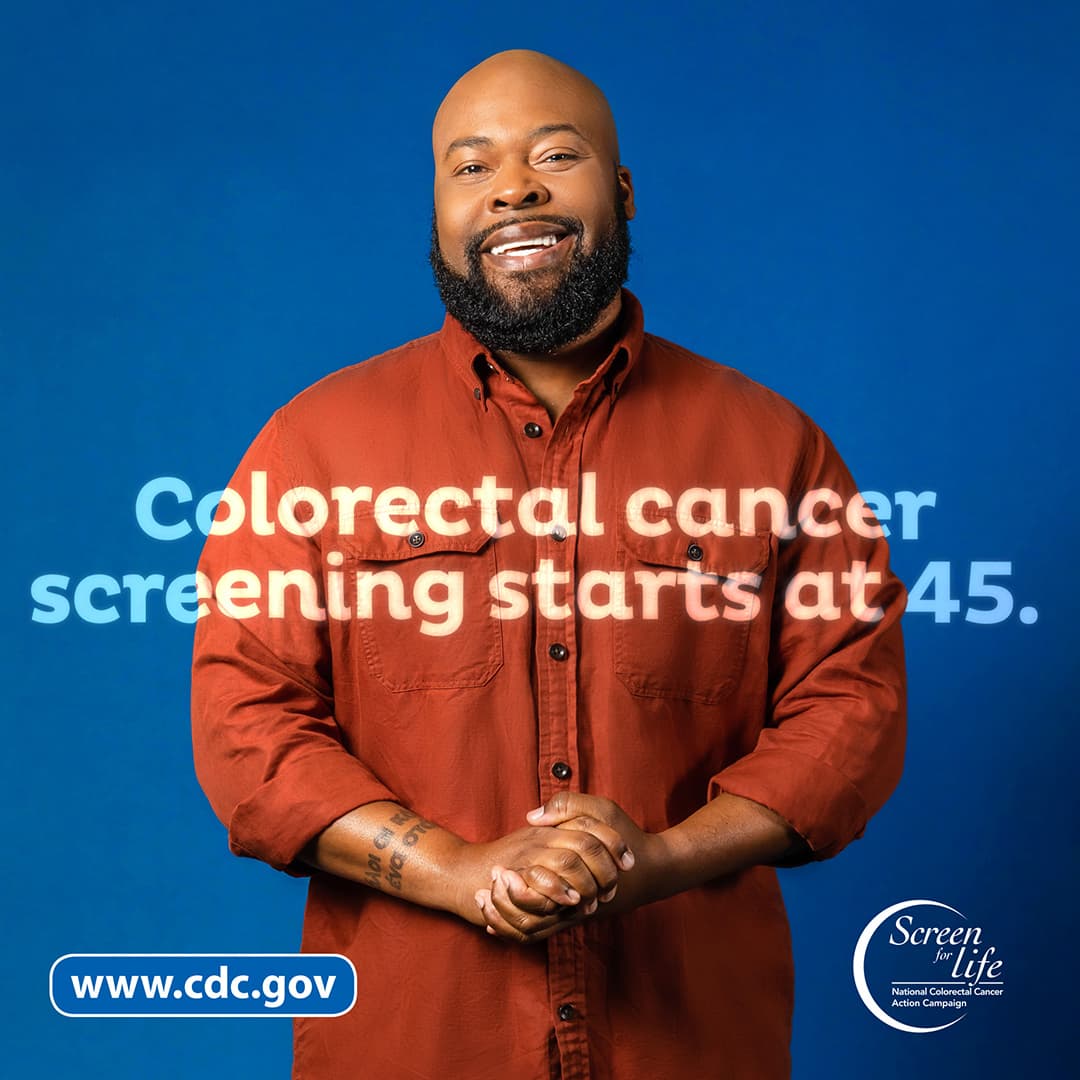45 Is the New 50 for Colorectal Cancer Screening
Posted on byGinny Kincaid, MPH
Health Communication Specialist
Lead for CDC’s Screen for Life: National Colorectal Cancer Action Campaign

You may have heard by now that the recommended age to start colorectal cancer screening has been lowered from age 50 to 45. When we started to think about messaging around this age change, we jokingly threw out phrases like, “You now get to be screened for colorectal cancer even earlier, starting at age 45—lucky you!” We know colorectal cancer screening isn’t anyone’s idea of a fun afternoon, regardless of which test option you use.
But all jokes aside, any inconvenience or discomfort that comes along with screening is worth it. Colorectal cancer screening truly is an opportunity to prevent cancer. It’s one of the only cancer screening tests that can prevent cancer by finding precancerous polyps and removing them before they become cancer. Screening can also find cancer early when it may be easier to treat.
Colorectal cancer is a leading cause of cancer death for men and women. Each year, almost 53,000 people die of it in the United States. But it doesn’t have to be this way.
Why Did the Recommendation Change?
It’s normal for screening recommendations to be updated over time. The US Preventive Services Task Force, an independent volunteer group of experts in prevention and evidence-based medicine, reviewed new data and concluded that screening for colorectal cancer in adults who are 45 to 49 years old can be helpful.
Other Considerations
- Some people may need to be screened earlier than 45. Ask your doctor about screening if you or a close relative has had colorectal polyps or colorectal cancer. You should also discuss screening if you have other risk factors including an inflammatory bowel disease such as Crohn’s disease or ulcerative colitis, or a genetic syndrome such as familial adenomatous polyposis (FAP) or Lynch syndrome.
- Several screening tests can be used to find polyps or colorectal cancer, including some that can be done at home. There is no single “best test” for any person. Each test has advantages and disadvantages. Talk to your doctor about the pros and cons of each test, and how often to be tested.
If you or someone you know is 45 or turning 45 soon, talk to them about getting screened for colorectal cancer.
Posted on by

